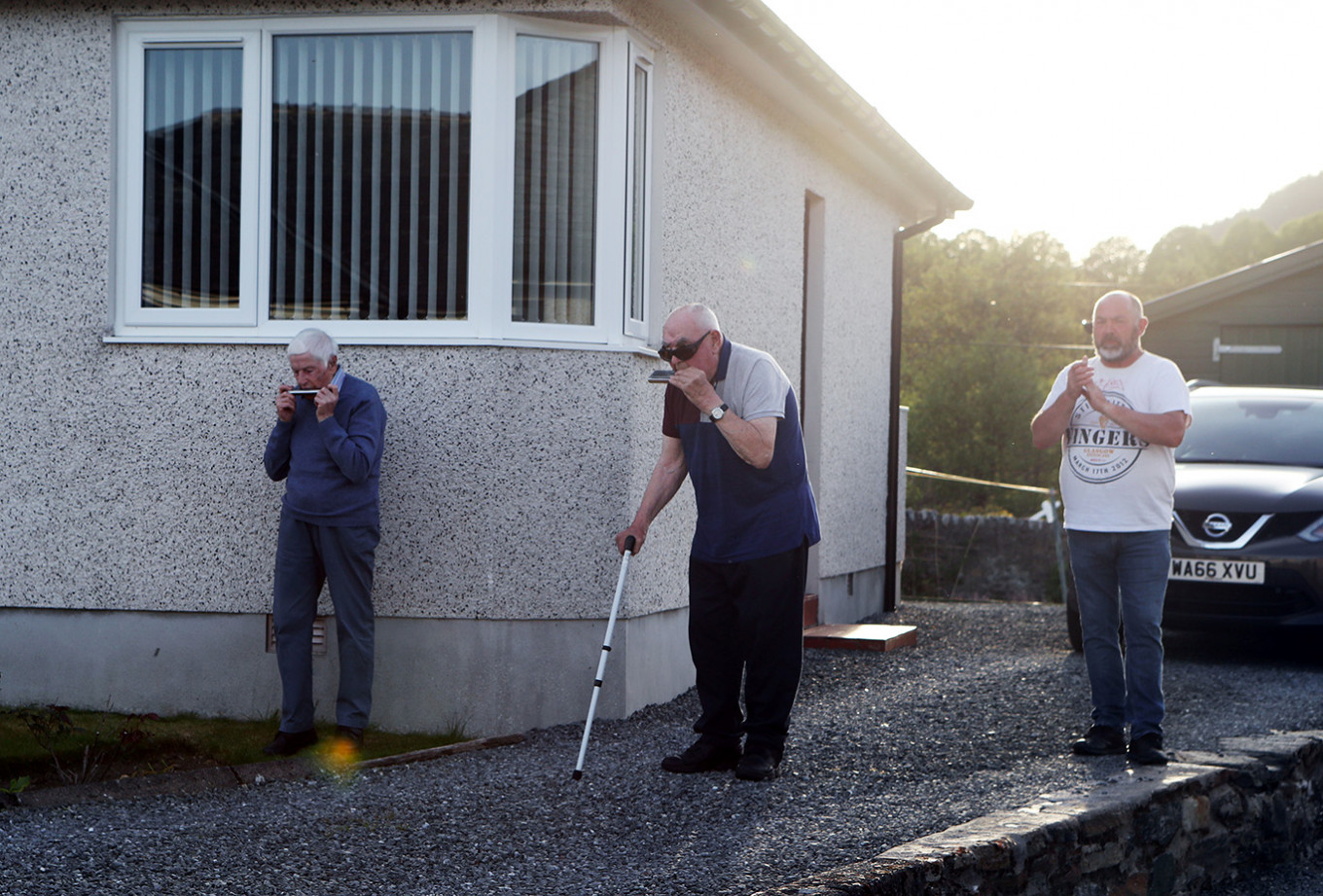Popular Reads
Top Results
Can't find what you're looking for?
View all search resultsPopular Reads
Top Results
Can't find what you're looking for?
View all search resultsScotland keeps quarantine for Spain, Serbia
Change text size
Gift Premium Articles
to Anyone
 People react outside their homes during the last day of the Clap for our Carers campaign in support of the NHS, following the outbreak of the COVID-19, Pitlochry, Scotland, Britain, May 28, 2020.Travellers from Spain and Serbia will still have to self-isolate if they travel to Scotland, the devolved government in Edinburgh said on Wednesday, despite a previous UK government lifting of restrictions. (REUTERS/Russell Cheyne)
People react outside their homes during the last day of the Clap for our Carers campaign in support of the NHS, following the outbreak of the COVID-19, Pitlochry, Scotland, Britain, May 28, 2020.Travellers from Spain and Serbia will still have to self-isolate if they travel to Scotland, the devolved government in Edinburgh said on Wednesday, despite a previous UK government lifting of restrictions. (REUTERS/Russell Cheyne)
T
ravellers from Spain and Serbia will still have to self-isolate if they travel to Scotland, the devolved government in Edinburgh said on Wednesday, despite a previous UK government lifting of restrictions.
London last week cancelled coronavirus quarantine for travellers coming to the UK from 59 countries and territories, including Spain and other major European travel destinations, but not the United States.
But Scotland complained that it was not properly consulted during the decision-making process.
The devolved administrations in Scotland, Wales and Northern Ireland can each adopt their own health regulations, while England follows those announced by the UK government in London.
Scotland's First Minister Nicolas Sturgeon said Spain's infection rates were still too high to make travel safe.
"I know how many people from Scotland enjoy travelling to Spain and I know how much we love welcoming Spanish tourists," she told reporters.
"My hope is these restrictions can be relaxed soon, and possibly very soon."
Serbia's capital Belgrade was hit by violent protests on Tuesday over a weekend curfew that followed an infections spike.
Sturgeon insisted there would be no "way around" the restrictions, warning that Scottish officials had the travel details of those entering English airports.
Sturgeon, who has repeatedly angered London by adopting more stringent measures during the outbreak, said the virus was less prevalent in Scotland than other parts of the UK.
"This is relevant to the decisions that we take in relation to quarantine," she said.
Sturgeon's Scottish National Party (SNP) has been pushing UK Prime Minister Boris Johnson to approve a new independence referendum for England's northern neighbor.
Johnson has steadfastly refused but polls show independence sentiments rising in the wake of the UK's split from the European Union, which most Scottish voters opposed.
A survey conducted for The Sunday Times last weekend indicated Sturgeon's handling of the coronavirus crisis helped push Scottish approval of independence up to 54 percent.
In the 2014 referendum on independence, 45 percent voted in favor against 55 percent who wanted to keep the three-centuries-old union.






